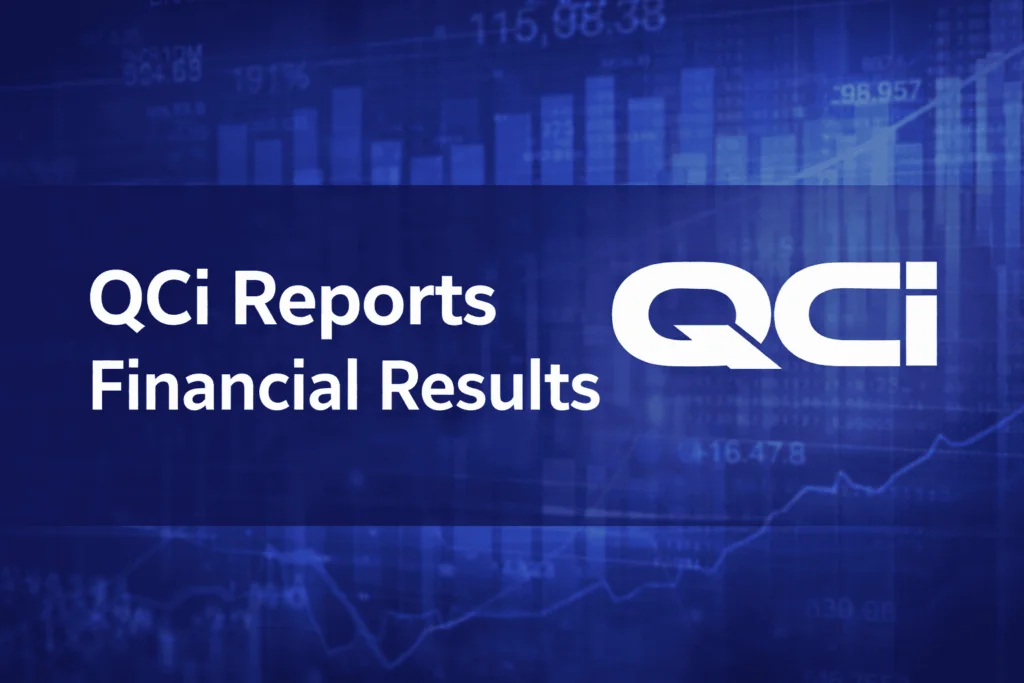Quantum sensing uses the principles of quantum mechanics to obtain highly accurate and sensitive measurements at a deeper level compared to traditional sensors. It is one of the branches of quantum technologies that is furthest ahead in application practicality.
With the potential to enable incredibly precise navigation systems, improve the discovery of new materials, enhance medical imaging techniques, and more, quantum sensing could positively impact a wide range of industries. Sectors as diverse as national security and climate monitoring could experience higher performance impact from quantum sensing, with particular promise for Medtech, pharmaceutical, and space applications.
QAI Ventures is a growing venture capital firm actively advancing quantum technology, focusing on unlocking the global potential of technologies such as quantum sensing. The fund invests in and supports startups that explore the capabilities of quantum technologies, catalyzing growth through collaboration and strategic partnerships.
This exclusive article examines the role of QAI Ventures in supporting the growth of the quantum sensing sector. The fund provides expertise, capital, and access to a network of industry partners, while actively contributing to the development of the technology. Its accelerator program, for example, grants startups access to a network that includes QuantumBasel, QuEra Computing Inc., Strangeworks, IBM Quantum, IonQ, and D-Wave. These collaborations develop a convergent quantum ecosystem, pushing the potential of quantum technology’s capabilities and applications.

Understanding Quantum Sensing
By using the principles of quantum mechanics, quantum sensing measures interactions and behavior at the particle level with potential precision and sensitivity beyond that of classical sensing techniques. The technology operates on the quantum properties of atoms and molecules, taking advantage of quantum properties, such as spin and entanglement, to detect and measure environmental changes with exceptional accuracy and fidelity.
With sensitivity up to 1,000 times greater than traditional sensors, quantum sensing offers improved sensitivity over current methods and has the potential to explore phenomena that previously couldn’t be detected. Prominent examples currently using quantum sensors are atomic clocks and improving the image fidelity for MRI scanners in medical diagnostics. The former can play a key role in geographical navigation.
Quantum sensing might even take quantum technology to outer space – the final frontier – for redefined and improved navigation and communication systems for planes, spacecrafts, and more.
On a grounded level, quantum sensing is proving useful in the strategic resource of advanced materials. By peering into nanoscopic scales, quantum sensing can discover new variations that could produce materials with higher performance and a greener footprint.
The Future of Computer Memory

Based in Basel, Switzerland, Qnami develops and commercializes quantum sensing solutions based on atomic defects, so called nitrogen-vacancy (NV) color centers, in diamond as a new type of microscope to positively impact the semiconductor industry. Using Qnami’s quantum microscope system, ProteusQ, users can push the frontiers of next-generation chips by optimizing their design process and characterizing their novel materials.
Teaming up with Imec (Belgium), a pivotal figure in advancing semiconductor technologies, Qnami illustrated how ProteusQ could facilitate the progress of magnetoresistive random-access memories, or MRAM, a type of magnetic memory that promises greater electric efficiency, durability, and faster writing and reading speeds compared to current RAM technologies.
“This collaboration showcases the effectiveness of Scanning NV Microscopy for early-stage assessment and characterization of MRAM device properties during manufacturing. Quantum sensing holds distinct promise for metrology across various innovative magnetic memory architectures,” shares Mathieu Munsch, CEO of Qnami.
Quantum Sensing in Space

In space applications, quantum sensing, in combination with quantum communication, introduces new possibilities for navigation. XAIROS, a company specializing in atomic clocks and time-signal distribution for space applications, leverages quantum sensing to improve satellite accuracy and reliability. The company is developing high-precision, high-security time distribution technologies on a global scale, aiming to surpass the accuracy and security limitations of current GPS systems. With the quantum-enabled high-precision timing signals XAIROS can enhance data collection from Earth’s remotest areas, leading to better navigation, climate monitoring, and even disaster management and reaction.
Quantum sensing’s precision and sensitivity position it as one of the most innovative technologies today. Alongside established and developing applications, quantum sensors are in various stages of development for industry, defense, and scientific research. QAI Ventures recognizes the technology’s current value and its future potential to reshape economies and societies through more accurate and higher-fidelity data. As quantum sensing keeps evolving, it could lead to breakthroughs in numerous fields, from healthcare and environmental science to space exploration and beyond.
Quantum Sensing in Action
Quantum sensing is making major strides across sectors. One area of note is the innovation hub in Basel, Switzerland, aptly named QuantumBasel.
As Switzerland’s first commercial quantum center, QuantumBasel integrates life sciences, industrial manufacturing, and logistics with quantum computing, quantum technology in general, and other deep technologies.Meanwhile, academics and industry experts in Basel are pushing the boundaries of science even further. For example, the Quantum Sensing Lab within the Department of Physics at the University of Basel, led by Prof. Dr. Patrick Maletinsky, is developing quantum sensors based on NV-color centers in diamond that can perform detailed nanoscale measurements of magnetic systems at the atomic and molecular levels. An emerging quantum sensing application that could discover new materials and material compounds for higher performance and greener products, even alternatives to rare raw materials.
Pathways to Commercialization
As they evolve, quantum sensing startups and spin-outs face technical and financial hurdles on their path to commercialization. The complexities of quantum sensing require substantive investments in research and development, often before a viable product reaches the market. The challenges of quantum technology startups aren’t only the science and engineering, but also the product-market fit and introduction.
Adding to this challenge, 2023 experienced a constrained private investment landscape, particularly in deep technology, where investors often are wary of the long timelines, capital intensity, and high risks of quantum innovations. Subsequently, there’s a critical need for “patient capital” — investment willing to wait longer for returns — to support the growth and potential of quantum sensing.
In addition to patient capital, a collaborative quantum ecosystem with strong partnerships between academia, industry, and government is required.
Academia contributes to cutting-edge research and innovation, whereas the industry offers practical applications and market insights. Governments provide policy support and funding mechanisms alongside private capital. These collaborations can accelerate the development of quantum technologies, bridging the gap from theoretical breakthroughs to commercial applications and benefitting startups and society in equal measure.
QAI Ventures’ Quest For Empowering Quantum Innovation
QAI Ventures supports startups that leverage quantum sensing in combination with artificial intelligence with patient capital, including those already impacting the medical technology, pharmaceutical, and space applications industries.
By providing investments, expertise, and access to a collaborative ecosystem, QAI Ventures empowers companies like Moonlight AI to navigate the landscape of personalized medicine. Moonlight AI takes an innovative approach to computational pathology, aiming to make genomic information more accessible to cancer patients globally.
Moonlight AI’s achievement in receiving the Public Voting Award for Medtech at the Top 100 Switzerland Startups event demonstrates QAI Ventures’ commitment to backing projects with the potential for positive global transformation. This synergy between capital, expertise, and innovation paves the path for groundbreaking developments in healthcare and beyond.
Nicole Romano, CTO of Moonlight AI, said the recognition from the Top 100 Switzerland Startups “affirms our commitment to driving technological innovation and highlights the potential impact of our research across industries.”
Predictions and Possibilities
Numerous applications are enabled by quantum sensing, including precise navigation for space missions, enhancing Earth observation, and introducing advanced diagnostic tools for early disease detection.
QAI Ventures actively supports these emerging applications by offering both financial support and sector-specific and topical insight, uniting theory with practical applications. The fund’s commitment nurtures the ecosystem by integrating startups, pushing technological leaps, and helping position quantum sensing as a key component for progress.
Startups in the quantum sensing industry looking for patient capital and an enriching network of like-minded scientists can contact QAI Ventures for a non-committing discovery call.
Through its different investment instruments and Startup programs and its ties to QuantumBasel, QAI Ventures offers access to a global quantum network and investment designed to support the commercial viability of transformative quantum technology solutions.















